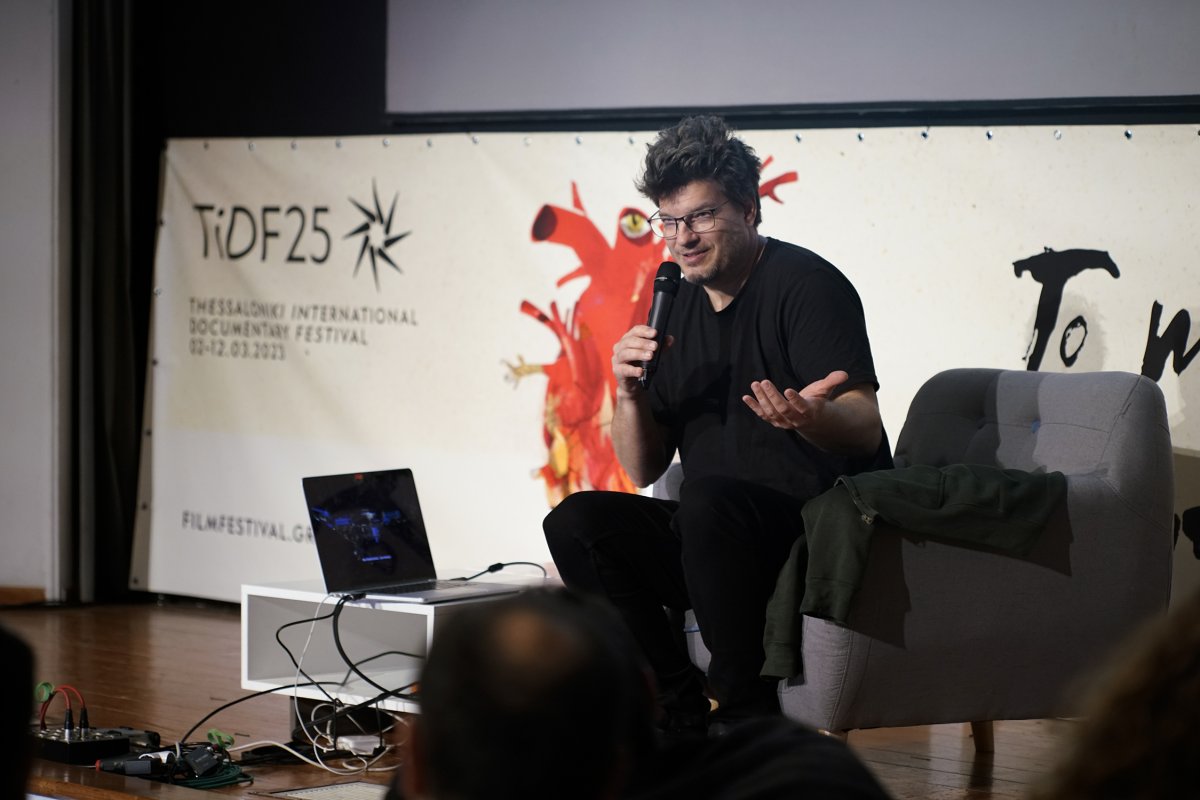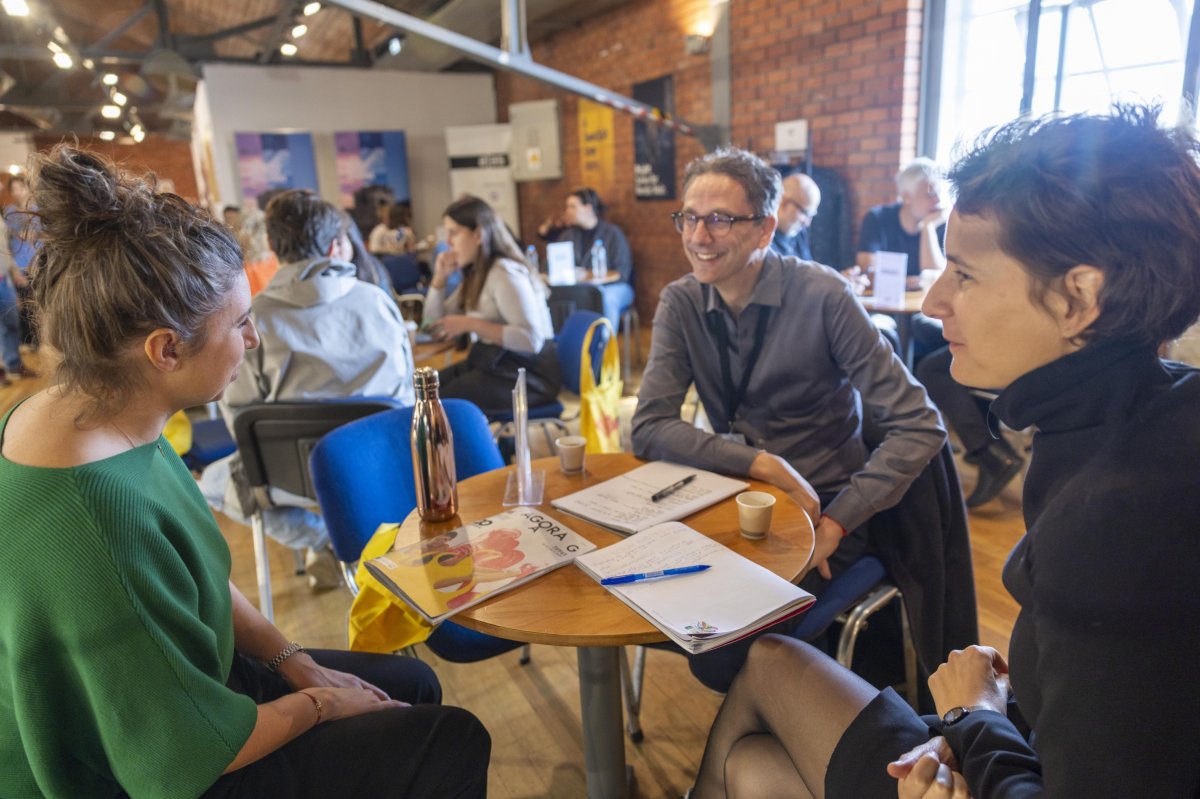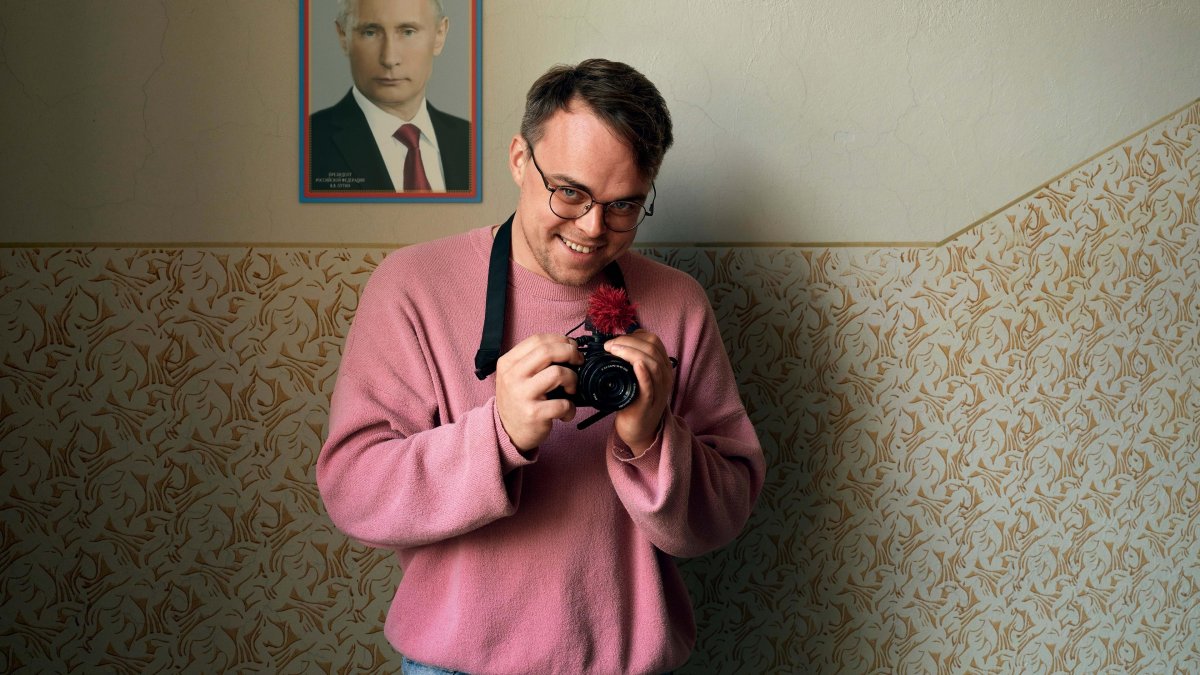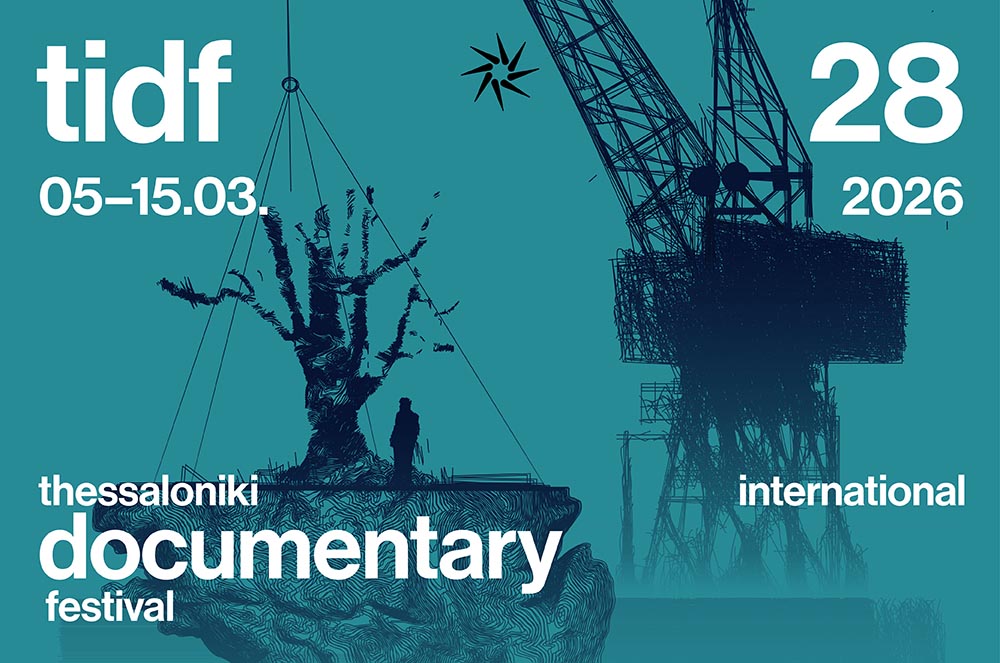Austrian filmmaker Nikolaus Geyrhalter delivered a masterclass on Tuesday March 7th, at Pavlos Zannas, under the title "Reality as a work of art", within the framework of the 25th Thessaloniki Documentary Festival, which is hosting a tribute to his work. Mr Apostolos Karakasis, filmmaker and professor at the Film School of the Aristotle University of Thessaloniki, took the floor first and introduced Nikolaus Geyrhalter to the audience: " It is our great honor to welcome one of the leading figures of contemporary documentary filmmaking in the past two decades. He will surely blush hearing these words because he is extremely modest, but take my word, I am not exaggerating at all. Nikolaus Geyrhalter has developed his own personal cinematic language, which prompts the viewer to reflect on all the crucial issues that concern Western society. Almost all of his films have been screened at previous editions of the Thessaloniki International Documentary Festival and have won numerous awards and honors at many international festivals. In fact, at this very moment, the Pompidou Center in Paris is hosting a retrospective on his work,” he said.
Mr Geyrhalter then took the floor and thanked the audience for their presence. "I see many film students in the audience, which makes me very happy. I must, of course, tell you that I have never studied at such a school. After the third rejection, I made the decision once and for all. I may have even embarked on a process to prove to myself that I can make films without having studied the subject. After all these years, I realize that if I had followed these specific studies, my films would definitely be different. I don't know if they would be better or worse, but they certainly wouldn't have this simple structure they possess. When teaching young students, the first advice I give them is not to dogmatically follow the instructions of their professors. Of course, I don't mean this quite literally, but you can understand. Personally speaking, I have been lucky, I have been able to find my way into this art and this work, perhaps my earlier tenure in photography has helped me. I will show you an excerpt from the documentary Earth, which I hope will serve as a trigger to address various issues around the documentary genre," he said.
Immediately after the screening of the clip, the Austrian filmmaker went into detail about how this documentary was shot: “This documentary is the most striking proof that sometimes you don't need exhaustive preparation to make a documentary exactly as you want it. Initially, it was extremely difficult to get permission to film the premises of a mine. After many negative responses, we found this mine in Spain, where we were given permission to film. From that moment on, six days of preparation proved to be sufficient. Moreover, it is a rule that you should not have a predetermined idea of exactly how a documentary will turn out. You have to be willing to adapt, to change direction, to keep your eyes open for anything new and interesting that comes along the way. People in places like this are much more receptive and open to talking than you might expect. After all, it's not very often for them to have someone take such a keen interest in their lives and work. During the filming, we experienced two unexpected surprises. Firstly, we discovered that there was an archaeological site inside the mine. Talking to the person in charge of the excavation, who had a very charming perspective as a person, we incorporated a second story into the film, which began to move parallel to the main story. Secondly, we found that every day, at 12 noon, there was a planned explosion, which we were determined to include in the final footage of the film."
In response to a question about whether he severely criticizes Western lifestyle, Nikolaus Geyrhalter replied: "It goes without saying that I approach with a critical eye various harmful behaviors and tendencies of modern humans, especially towards the environment: the waste of resources, pollution, and the greed with which we behave as a species. However, at the same time, taking inspiration from the documentary Earth, I am also fascinated by a condition with which I disagree. Humanity has always tried to discover new resources, to push its limits beyond the breaking point, to advance into uncharted depths. The goal is not to exercise an easy and fruitless criticism. What is important is to understand and listen, to show interest. In my opinion, films cannot change the world. But they can lead you down paths you never imagined, trigger an inner process that didn't seem possible or probable. My duty is to frame and film situations, stories and circumstances in a way that makes the audience feel present. Only if you feel that you are there, that everything you see in a documentary actually happens in real life, in our world, can you develop an opinion."
Then, answering a question posed by the audience, he talked about the use of interviews, the method of script writing, as well as the process of selecting locations for his films. "It goes without saying that I make an initial script, without details, but only with the general direction of the film, without a detailed plan. In my opinion it's dangerous to stick to a script when making a documentary. If you stick to something you've predetermined, all you'll achieve is replicating the knowledge you already possess. However, the goal is different. You must constantly enrich your perspective, expand your horizons, even surprise yourself. To put it simply, you need to leave room for things to happen. As for interviews, I often avoid including them in my films, but it's not a standard choice; it always depends on the situation, on how the interviews went, on whether they can work beneficially in the context of the film in question. In my films, I set up a theatrical scene with the camera, where interviewees are asked to be themselves, without interruptions or external interventions. Additionally, I am not interested at all in statistical numbers and data, which can be easily found on the internet. The documentary's mission goes beyond the mere citation of facts and data," he said characteristically.
"As far as locations are concerned, I choose them with great care, but rarely visit them before we start filming. If I did, I would have a preconceived opinion and perspective, which I would have to distance myself from while filming because what happens in real time is always different from what you have pre-planned. Of course, I have a small, select team that takes care of all the preparation. My part of the job is the most fun, to be honest.” Just before the masterclass ended, Nikolaus Geyrhalter showed the audience a short clip from his documentary Our Daily Bread, which highlights the dark and invisible aspects of the food industry. When asked about whether there is an ethical limit to the violent images that a documentary filmmaker can portray, the Austrian filmmaker replied: “In this particular case I felt it was my duty to show the reality of poultry farms and slaughterhouses exactly as it is, without any embellishment. At the end of the day, this is the food we put on our table every day. The public has the right to know exactly what's going on," he stated.
Finally, Nikolaus Geyrhalter addressed to what extent he pursues the aesthetic effect in his shots, but also whether he opts for a less conventional and experimental narrative in certain documentaries, such as in Homo Sapiens. "It is a given that the aesthetic aspect concerns me as a filmmaker. I firmly believe that a beautiful image can attract the audience and spark their interest. In other documentaries that I have directed, I try to film buildings and infrastructure in a way that helps the audience understand the structures of a whole system. Perhaps my experience in the field of photography plays a role as well. To be honest, I cannot even define what is conventional and what is experimental narration. The truth is, however, that I never want to be overly explanatory; excessive information takes away all interest. Satisfying the audience should never become an end in itself. In any case, we should never underestimate the viewer. From my experience, I have realized that the audience is willing to absorb and follow extremely complex things, as long as you draw their attention and make it part of the story you are telling. As for the more technical aspect, I systematically avoid close-ups. It's preferable, more exciting and much more democratic to let the audience choose where to focus their attention. A close-up in a documentary is like dictating the viewer where to pay attention to," he concluded.















